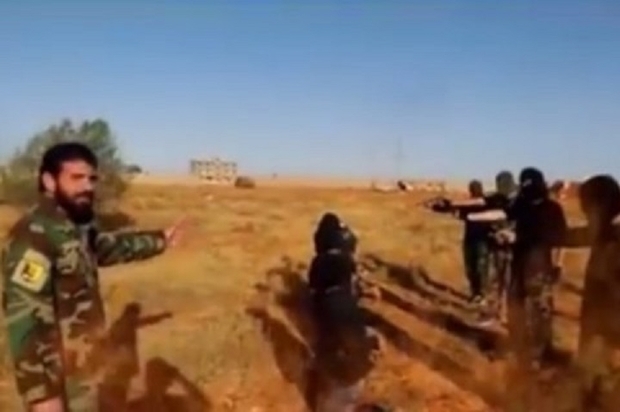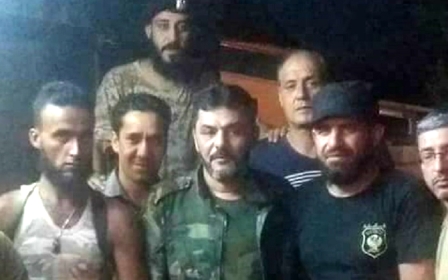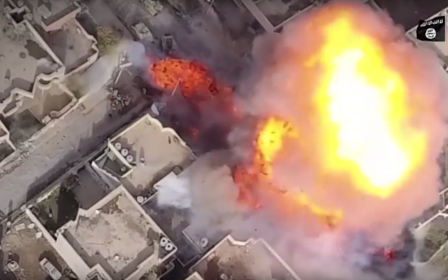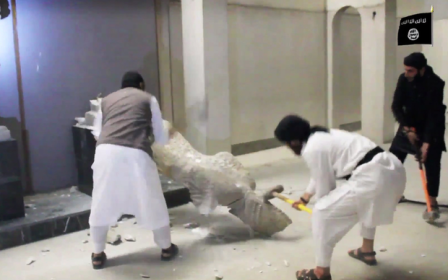Libyan warlord faces ICC warrant: Is this a new era of open-sourced justice?

The International Criminal Court (ICC) has, for the first time, issued an arrest warrant based solely on social-media-sourced evidence in a case involving a Libyan military commander.
The warrant, issued on the 15 August, accuses Mahmoud al-Werfalli of mass executions and summary killings. Werfalli served in the Al-Saiqa Brigade, an elite force of military strongman Khalifa Haftar’s so-called Libyan National Army (LNA).
Werfalli has been accused by the ICC of directing or participating in a series of executions of 33 prisoners between June 2016 and July 2017 in Benghazi and the surrounding areas.
The charge, murder as a war crime under Article 8(2)(c)(i) of the Rome Statute, is based on seven separate incidents of execution which were documented in seven separate pieces of video footage.
Each piece of footage was widely shared on social media.
For Christiaan Triebert, researcher at the open-source investigations site Bellingcat, the step is a "very significant development”.
“It aligns the ICC with the realities of many of today's conflict zones,” Triebert told MEE.
Footage of atrocities is often taken by witnesses, but can also be documented by the perpetrators themselves, in order to later share as propaganda.
But on Wednesday, images shared online appeared to show him at liberty.
Mine of evidence
Using open source data means that bodies such as the ICC have “a potential mine of evidence” at their disposal, according to Triebert. This is especially important, he said, in areas where access is limited. For example, areas “controlled by the so-called Islamic State: are hard if not impossible to enter as a field investigator”.
YouTube recently faced criticism after its new artificial intelligence programme deleted videos from numerous channels documenting potential war crimes, later apologising for “mistakenly” removing them.
"With the massive volume of videos on our site, sometimes we make the wrong call," it said.
Three of the videos uploaded by Bellingcat to document the potential war crimes in the Werfalli case were also deleted by YouTube.
Eliot Higgins, founder of Bellingcat, said in a tweet that even though they marked the video as “relating to human rights” as instructed by YouTube, they were still deleted.
Treitbert warned that “when that footage is deleted, the evidence may be gone”.
It was imperative, he said, for YouTube to find the right balance.
“YouTube has to find a trade-off between removing propaganda and taking down potential open source evidence for legal cases.
“The former should never be done for the latter, even if there may be some political pressure to stop propaganda.”
He also suggested it would be “good to get a conversation going” between organisations such as the ICC, Bellingcat and YouTube to find a common ground on the subject.
The use of open source investigations can draw on the expertise of multiple experts, according to Keith Hiatt, the director of the human rights and technology programme at the Human Rights Centre at UC Berkeley School of Law.
“These collaborations have produced high-quality reports,” Hiatt added.
Endangering witnesses?
But many have criticised open source evidence as unreliable.
Emma Irving, assistant professor of public international law at the Grotius Centre for International Legal Studies at Leiden University, has said that “open source evidence is notoriously susceptible to problems of verifiability”.
This “naturally affects its reliability in any kind of criminal proceeding”, she said.
But Triebert insists there are ways to address such concerns.
“There is a wide variety of tools and methods… which can be used to determine the exact location of a video or a photograph,” Triebert told MEE. “Verifiability is a challenge that can be overcome in many cases,” he added.
Others say that it could potentially endanger those who gathered the evidence in the first place.
“Reliance on open source evidence may increase the risks facing eyewitnesses and people who gather the information,” Hiatt said.
Impact on the ground
While this may be a groundbreaking development in terms of the methods for collecting evidence, experts are not convinced this particular warrant will have much effect on the accountability process in Libya.
It seems unlikely that Werfalli will ever be tried at the Hague according to Libya analyst Mattia Toaldo.
Toaldo, policy fellow in the Middle East and North Africa Programme at the European Council on Foreign Relations, told Middle East Eye: “I don't see Werfalli actually being tried by the ICC anytime soon.”
“The LNA and Haftar just have to demonstrate that they are investigating him and that would already make the work of the ICC much more difficult,” Toaldo added, as the ICC insists that local authorities first attempt to prosecute those wanted by the court.
But while this new arrest warrant might not change things in Libya in the short term, the method of collecting evidence may have a longer term impact on the way criminals operate, or at least on the way they create and produce propaganda.
Perpetrators of war crimes might be forced to obscure their location in any videos shared online, in an effort to evade justice.
“We have seen this with so-called Islamic State in footage coming from Syria for example… Similarly, footage from Yemen has seen the obstruction by blurring the background,” Triebert told MEE.
“They have increased their operational security,” he added.
On the other hand, it is unlikely that war criminals will care about the potential revelation of the location of their crimes.
“They all upload the footage themselves to their social media accounts, basically bragging about what they did,” Triebert said.
New MEE newsletter: Jerusalem Dispatch
Sign up to get the latest insights and analysis on Israel-Palestine, alongside Turkey Unpacked and other MEE newsletters
Middle East Eye delivers independent and unrivalled coverage and analysis of the Middle East, North Africa and beyond. To learn more about republishing this content and the associated fees, please fill out this form. More about MEE can be found here.




